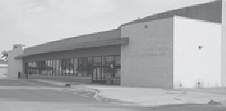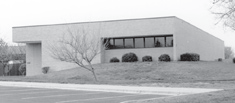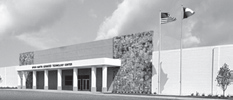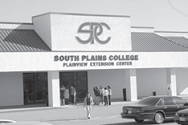SOUTH PLAINS COLLEGE IS A COMPREHENSIVE, TWO-YEAR COMMUNITY COLLEGE THAT OFFERS ACADEMIC TRANSFER PROGRAMS AND COLLEGE-LEVEL TECHNICAL EDUCATION PROGRAMS.
South Plains College is a comprehensive, two-year community college that serves the greater South Plains area of Texas with innovative educational programs that span the arts and sciences, technical education, continuing education and workforce development. The college’s main campus is located in Levelland. SPC maintains two extension centers in Lubbock that are located at the Reese Technology Center and Byron Martin Advanced Technology Center. The northern tier of the college’s service area is served by an extension center in Plainview. The college’s educational program includes academic transfer courses that parallel university programs for students who plan to earn a bachelor’s degree. SPC also maintains a diverse offering of one and two-year technical programs for students who want to develop specific job skills and then enter the world of work.
Through its Arts and Sciences Division, the college offers students 47 academic transfer options in 22 disciplines which lead to the Associate of Arts and Associate of Science degrees. Varied academic transfer options can be found in the fine arts, the sciences, social sciences, behavioral sciences, communications, languages, mathematics, engineering, business administration and physical education. Students who attend SPC complete their freshman and sophomore course work and then transfer to a university to complete the remaining years of a baccalaureate program. The college’s faculty advisor system helps students plan for successful transfer.
In the Health Occupations Division and Technical Education Division, the college offers another 83 programs that lead to the Associate of Applied Science degree, Associate of Applied Arts degree or a Certificate of Proficiency. Students enrolled in these programs receive first-class training in a variety of career and occupational areas, including allied health, nursing, business administration, the creative arts, computer information and electronics technology, industrial technology, and professional services and energy. All technical programs are continually updated with the help of advisory committees composed of representatives from the medical community, education, the professional community, business and industry. In this way, SPC can assure students are receiving technical training that is in tune with the times.
South Plains College also provides short-term training and workforce development programs in a variety of formats that help individuals gain marketable skills for immediate employment or that help them upgrade existing skills to meet emerging job technologies. Through its Division of Continuing Education and Workforce Development, the college is an active participant in the area’s economic development efforts.
SPC takes great pride in its teaching faculty and its teaching facilities. Instructors are highly qualified in their respective areas of study. But more importantly, they are associated with SPC because they want to teach. The college’s instructional facilities are also excellent. Students learn in modern, comfortable classrooms and labs that house some of the most current teaching equipment available. Hands-on training and teaching concepts are an integral part of the educational philosophy. Additionally, there is a commitment to introducing students to advanced technologies and computer applications in all areas.
More than 9,000 students take advantage of the educational offerings available at SPC each semester, and nearly half of all SPC students are the first in their families to attend college. An additional 5,000 students enroll in non-credit continuing education or workforce development programs each year.
South Plains College’s accessibility, its excellent facilities, and its qualified, friendly teachers are what bring about student success at SPC. Personal attention in and out of the classroom is a way of life.
Campuses

■ SPC Levelland Campus
|
^Top |
South Plains College’s main campus is located in Levelland, Texas, 25 miles due west of Lubbock. Established in 1957 by the residents of Hockley County, South Plains College offers its students a diverse educational program. The program of study on the Levelland Campus spans freshman and sophomore studies for students who plan to earn a bachelor’s degree. These classes, offered through the Arts and Sciences Division, parallel those offered by universities and are fully transferable to these schools. First-class technical programs are also available to students who want to obtain specific job skills in one or two years of college and then go right to work in a good paying job.
SPC is recognized as one of the most modern and complete community colleges in Texas. The Levelland Campus encompasses 40 buildings on a 177-acre campus. Attractively landscaped and maintained, the campus features a contemporary architectural design that enhances an excellent learning environment.
What sets SPC apart from other schools its size are firstrate classroom and laboratory facilities that are specifically designed for each teaching area. SPC students have access to some of the most sophisticated and up-to-date educational and training equipment available. Computer technologies can be found in every instructional area.
Nearly 5,000 students enroll for classes each fall on the Levelland Campus. SPC’s student body is diverse in its makeup and character. Geographically, about 94 percent of these students come from within a 100-mile radius of Levelland and Lubbock. Being close to family and jobs at home are important to the majority of SPC students who commute to classes. Even with SPC’s regional makeup, almost all 50 states and a number of foreign countries are represented.
The age of SPC students is also wide ranging. About threequarters of all SPC students are traditional college-age. The average age of the student body on the Levelland Campus is 21 years.
SPC teachers are dedicated professionals who first and foremost love to teach and who believe in the community college concept. Faculty members are highly qualified in their fields of study and exhibit a wealth of educational experience they are willing to share with you. An average class size of 30 students assures that you receive a personal education. Faculty members work closely with you to help you gain your academic or technical goals.
A professional counseling staff can help you set your educational goals. If you are undecided about a college major, SPC counselors can help you determine what you like to do and where your talents lie. They are available, along with faculty advisors, to help you plan your college career. The Counseling Center offers a variety of services to help students with special needs.
SPC maintains residence halls for men and women on its Levelland Campus. The residence hall program offers comfortable and economical housing and dining facilities for students who want to live on campus. The college maintains eight residence halls, housing 278 men and 192 women. The Smallwood Apartments, also located on campus, accommodate 96 women.
Student activities, student organizations, intercollegiate athletics, recreational activities and rich college traditions give the Levelland Campus a resident-college flavor.
To View the Levelland Campus Map Click Here

An extension center of South Plains College, the SPC Reese Center offers a wide range of programs and courses designed to provide academic transfer, technical education, adult and continuing education, workforce development and other specialized training programs in cooperation with the universities, business, industry and the professional medical community of the South Plains area of West Texas.
South Plains College has been providing educational programs in the immediate Lubbock area since 1970 when it first began offering courses at the former Reese Air Force Base. Located off West 4th Street and Research Blvd., the SPC Reese Center offers freshman and sophomore-level college-credit courses in both academic transfer, selected technical programs and workforce development non-credit courses. While a variety of classes are offered during the day, the center maintains an extensive evening class program. This schedule allows Lubbock area students greater flexibility and convenience in taking college courses at night.
The college’s facilities at the Reese Center include six buildings, including five classroom buildings, SPC Buildings 2, 3, 4, 5, and 8. The college maintains administrative and student services offices in SPC Building 8 at 819 Gilbert Drive. Registration takes place in this facility.
The campus enrolls more than 3,500 students each semester in its associate degree and certificate programs. Students, for the most part, are residents of Lubbock or surrounding communities. Many are older adults entering college for the first time to gain marketable job skills.
The 16 technical programs offered at the SPC Reese Center are designed to prepare students for employment in a specific occupation through a prescribed course of study. The college offers technical programs in health occupations, business administration and industrial technology areas. These programs consist of college-level, semester credit hour courses and award either an Associate of Applied Science degree or a Certificate of Proficiency. The programs have been developed by South Plains College faculty members in direct consultation with advisory committees made up of individuals from education, business and industry.
Adult and continuing education programs are available to satisfy the professional and personal interests of area residents. Specialized training programs are offered to business and industry as workforce development needs arise in Lubbock and the South Plains area.
The ACT Center, sponsored jointly by South Plains College and the Lubbock Economic Development Alliance, is located in Reese Building 4 and provides computer laboratory facilities for workforce development training, facilities for high-stakes computer-based licensure and certification exams, and access to over 3,000 online short courses.
South Plains College is committed to assuring student success in college programs through a broad spectrum of support services which include career counseling, testing and skills assessment, computer-aided learning laboratories, and tutoring in basic skills and specific courses. The college also provides special services for persons with disabilities, workforce literacy courses, developmental and remedial programs, English as a second language courses, library and research services and job placement services.
Click Here To View the SPC Reese Center Map

■ Byron Martin Advanced Technology Center
|
^Top |
The Byron Martin Advanced Technology Center (BMATC) is a unique educational venture located at 34th and Avenue Q in Lubbock. Involving South Plains College, the Lubbock Independent School District and a number of community partners, the center is designed to deliver cooperative technical education programs to support the development of a skilled technical workforce for Lubbock and the South Plains region.
At the BMATC, South Plains College offers college-level technical education programs and courses that focus on business administration, computer technology, fire technology, machinist trades and automotive technology. Career guidance, counseling, library and tutoring services support the center’s instructional efforts.
Through an extensive workforce development program, the BMATC also serves the training needs of non-traditional students and workers who need to upgrade job skills or retrain for new jobs. The facility enables South Plains College to collaborate with its educational partners to provide rapid response training to attract new business and industry and customized job training to support and retain existing businesses.
The BMATC houses more than 87,000 square feet of instructional space and features high-tech computer classrooms with Internet access, a multimedia tiered conference room, and multimedia instructional support library with access to online services. Additionally, the facility houses 13 instructional classrooms with multimedia capabilities, mill work lab, metals lab, and automotive technology lab. State-of-the-art equipment in all instructional areas provides students with “high-tech, hightouch” instruction and hands-on application of skills.
Many individuals who need certain college classes to advance in their jobs, find these college classes at the Byron Martin Advanced Technology Center useful, convenient, and relative to their needs.

■ SPC Plainview Center
|
^Top |
The South Plains College Plainview Center opened in September 2005 and offers selected technical education programs, academic transfer courses and other workforce development programs. Located at 1920 W. 24th St. in Plainview, Texas, the center is designed to serve the northern tier of the college’s service area through distance education initiatives.
SPC maintains technical programs in cosmetology, vocational nursing and associate degree nursing at the Plainview Center. A variety of college-level general education courses are offered during the daytime and evening hours at the center to accommodate the needs of working adults. The center features interactive two-way video classrooms, computer labs and student services offices. College admissions, financial aid, career counseling, testing and skills assessment services are also provided for students.
Adult and continuing education programs are available to meet the workforce development needs of the Plainview community. SPC is committed to creating greater access to educational programs for rural residents through the Plainview Center.
Memberships
South Plains College is a member of the Texas Association of Community Colleges, the American Association of Community Colleges, the Commission on Colleges of the Southern Association of Colleges and Schools, the Hispanic Association of Colleges and Universities, the Western Junior College Athletic Conference, the National Junior College Athletic Association and the National Intercollegiate Rodeo Association.
Statement of Purpose
South Plains College is a publicly supported two-year community college, providing educational opportunities through academic, vocational-technical, continuing education, workforce development and community service programs. Educational programs and services are offered on the college’s main campus in Levelland and at extension centers located in Lubbock and Plainview. All locations serve a 15-county area of the South Plains. Because of the diversity and excellence of its educational offerings, the college attracts students not only from its service area, but from other parts of Texas and Eastern New Mexico, and around the world.
History and Philosophy
The history of South Plains College is the unfolding of an idea with two elements: the impulse and capacity of the individual to learn and produce, and the community dependent on the enlightened and productive individual. In some sense, this history begins when the local community begins, for the community has always understood that its nature is, in part, to learn, teach, and provide public education for its children. But by the early 1950s a few prominent citizens of Hockley County realized that the local education should no longer be limited to children, and that Hockley County required a greater role in the educational system of Texas. Consequently, these citizens twice petitioned the State Board of Education, once in 1951 and again in 1956, for permission to establish a junior college in Levelland. Given permission to hold an election, the citizens of Hockley County voted to establish South Plains College on April 2, 1957. In March 1958, Whiteface Independent School District became a part of the district, which was redesignated the South Plains Junior College District.
In 1958, the college opened its doors primarily as a two-year academic transfer institution, the first such college in Texas in more than 10 years. South Plains College opened the door to the expansion of community colleges in Texas, arguably the most significant development in Texas higher education of the last half of the twentieth century. Fruitful changes began almost immediately. In the early 1960s, the district developed a clearer notion of community college and rapidly incorporated technical and vocational education, continuing education, and educational counseling and other student support services.
South Plains College has continued to grow and expand, opening the extension at Reese Air Force Base in 1970, and a technical branch in Lubbock in 1973. In 1977, the college acquired and refurbished the West Texas Hospital Building in downtown Lubbock, and in the fall of 1978 established the Lubbock Campus at the new site. With the closing of Reese Air Force Base in 1997, the college acquired through public conveyance six educational buildings at the former air base. These facilities have been developed into an expanded SPC Reese Center program. The same year, SPC established a partnership with the Lubbock Independent School District and other Lubbock community partners to open the Byron Martin Advanced Technology Center. In order to accommodate enrollment and program growth, college officials in 2000 decided to close the Main Street facility and consolidate its Lubbock-based programs at the SPC Reese Center. In 2004, the college acquired a facility in Plainview to expand its educational program in the northern tier of its service area. This building was renovated and opened in September 2005 as the SPC Plainview Center.
Over the years, these expansions have significantly enriched South Plains College, broadening its service area and contributing to its understanding of the larger community. All the while, the larger community has been exceptionally positive in its support of the college, voting bond issues as needed and promoting enthusiastically all facets of the college.
History implies change, and South Plains College is committed to changing with the needs and opportunities of the community. It seeks not merely to be the guardian of tradition, but to be creative as well, ever seeking to uncover and find expression for individual and community potential. Communities, however, do not merely change. The original idea that established the college remains valid, and South Plains College understands its relation to the abiding values of civilization. Thus, the college continues to be the unfolding intellectual history of a community attempting to be a responsible part of the global communities of the world.
Mission Statement
South Plains College provides a quality learning environment. We are a comprehensive, public, open admissions community college that primarily serves a 15-county region comprising the southern portion of the Texas High Plains. We are committed to providing learning opportunities that are high quality, accessible, flexible, and affordable through academic transfer, technical-vocational, continuing education, workforce development and community service programs. We offer these programs in a learning environment that is innovative, stimulating, compassionate, safe, diverse and supportive of the community. We do so by employing dedicated and qualified teachers, staff members and administrators who deliver a broad and dynamic curriculum and quality student support services. Understanding the diverse needs of students and the community, South Plains College seeks to improve the lives of our students and prepare them for lifelong learning.
In order to accomplish its mission, South Plains College is committed to the following institutional purposes.
- To provide associate degree programs in the arts and sciences that successfully prepare students for university transfer into baccalaureate degree programs.
- To provide certificate and associate degree programs in technical and vocational education areas that equip students with skills, attitudes and aptitudes necessary for gainful employment, for professional certification or for advanced study.
- To provide students the opportunity to learn as a lifelong endeavor; to acquire skills for communications, critical thinking and problem-solving; to explore the use of technology; to express creativity; to experience leadership; and to grow socially.
- To provide developmental programs designed to assist those students who are under prepared for college and who need to develop college success skills.
- To provide flexible continuing education, adult literacy, and basic skills programs for individuals who wish to enrich their lives or who desire to upgrade existing knowledge and skills to meet new job demands.
- To provide workforce development programs, including specialized business and industrial training, which anticipate and address the specific needs of the global workplace.
- To increase student success by providing assessment, advisement and counseling services that assist students in clarifying personal, academic and career goals; by providing tutoring and other student support services; by providing enrollment, financial aid and job placement services; and by providing opportunities to participate in the academic and social life of the college through social activities, community cultural leadership and wellness-fitness services.
- To increase access to educational opportunities through distance learning, technology and other innovations.
- To listen actively to the needs of our constituents; to work in partnership with others to build communities; and to provide community service programs, cultural opportunities and activities that reflect the diversity of the region the college serves.
- To effectively develop, utilize and manage our resources and to continuously improve the quality of our processes.
Vision Statement
The employees of South Plains College have developed and adopted a vision statement and a series of organizational beliefs that define for the college a desired state and preferred future. A vision is a dream created out of personal and organizational values of how we would like South Plains College to be. Our vision statement and seven areas of commitment provide direction for the college and inspire the college community to stretch beyond its present level of institutional effectiveness.
Statement of Vision
The college’s vision statement follows:
South Plains College improves each student’s life.
Statement of Values
South Plains College respects the diversity of its student body and recognizes the worth and potential of each student. Therefore the college affirms the following values and beliefs.
Commitment to Students: We believe each student is individually important and has unique needs and goals. The college supports students in clarifying their lifelong goals, provides personalized attention and service, assists them in developing their talents and skills, recognizes their culture, heritage and lifetime experiences, and challenges them to become independent, lifelong learners.
Commitment to Educational Excellence: As educators, we believe effective teaching brings quality to learning and that our success is measured by the success of our students. The college provides and is accountable for the quality of its educational programs and student support services. We recognize that academic freedom is a catalyst for innovation and technology enhances the educational experience. These qualities enable the college to prepare students for lifelong, creative roles in the community.
Commitment to Access and Diversity: We believe the college should provide access to programs and services to students who may benefit and that the college should reflect the diversity of the community it serves. The college offers equal access to education through an open door admissions policy. The college has a responsibility to provide educational services that are affordable and available at convenient times and places.
Commitment to Faculty and Staff: We believe everyone contributes to quality and institutional success by working toward common goals as a team member. All members of the college community will have the opportunity to be an innovator, to grow through professional development, and to prosper from equitable rewards and recognition based on clearly defined expectations.
Commitment to a Quality Campus Environment: We recognize the importance of providing a safe, clean and accessible work and learning environment that is characterized by integrity, clear communications, an open exchange of ideas, appreciation for personal worth, involvement in decision making and respect for all individuals.
Commitment to the Community: As members of a larger community, we recognize the importance of enhancing the quality of life for all citizens of the community and supporting opportunities for economic development and growth. We will listen actively to the needs of our constituents and work to build partnerships to address common needs and goals.
Commitment to Effective Use of Resources: In order to remain good stewards of the public trust, we believe in the effective use of college resources to provide quality education and services to students and the community. To accomplish this, we will plan effectively for the future.
Accreditation and Standing
South Plains College is accredited by the Commission on Colleges of the Southern Association of Colleges and Schools (1866 Southern Lane, Decatur, Georgia 30033-4097; Telephone number 404-679-4501) to award associate degrees and proficiency certificates. SPC is an approved college recognized by the Texas Higher Education Coordinating Board. Questions concerning accreditation should be directed to the Vice President for Academic Affairs.
Accreditation by the Southern Association of Colleges and Schools facilitates the transfer of credit to other colleges and universities. Since degree requirements are not the same at all colleges and universities, students who plan to transfer are strongly encouraged to work closely with an academic advisor in preparing their class schedule each semester. It is also suggested that students consult the current catalog of the institution to which the student intends to transfer.
|